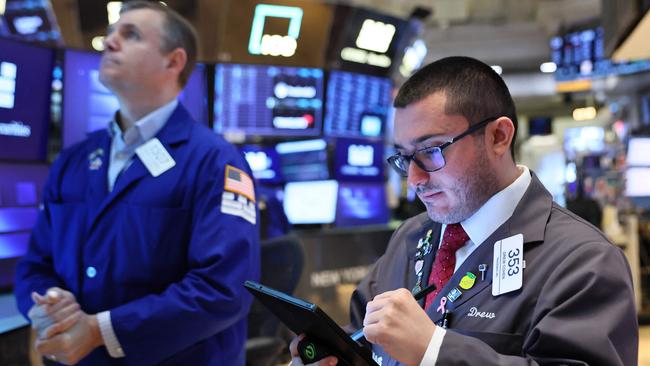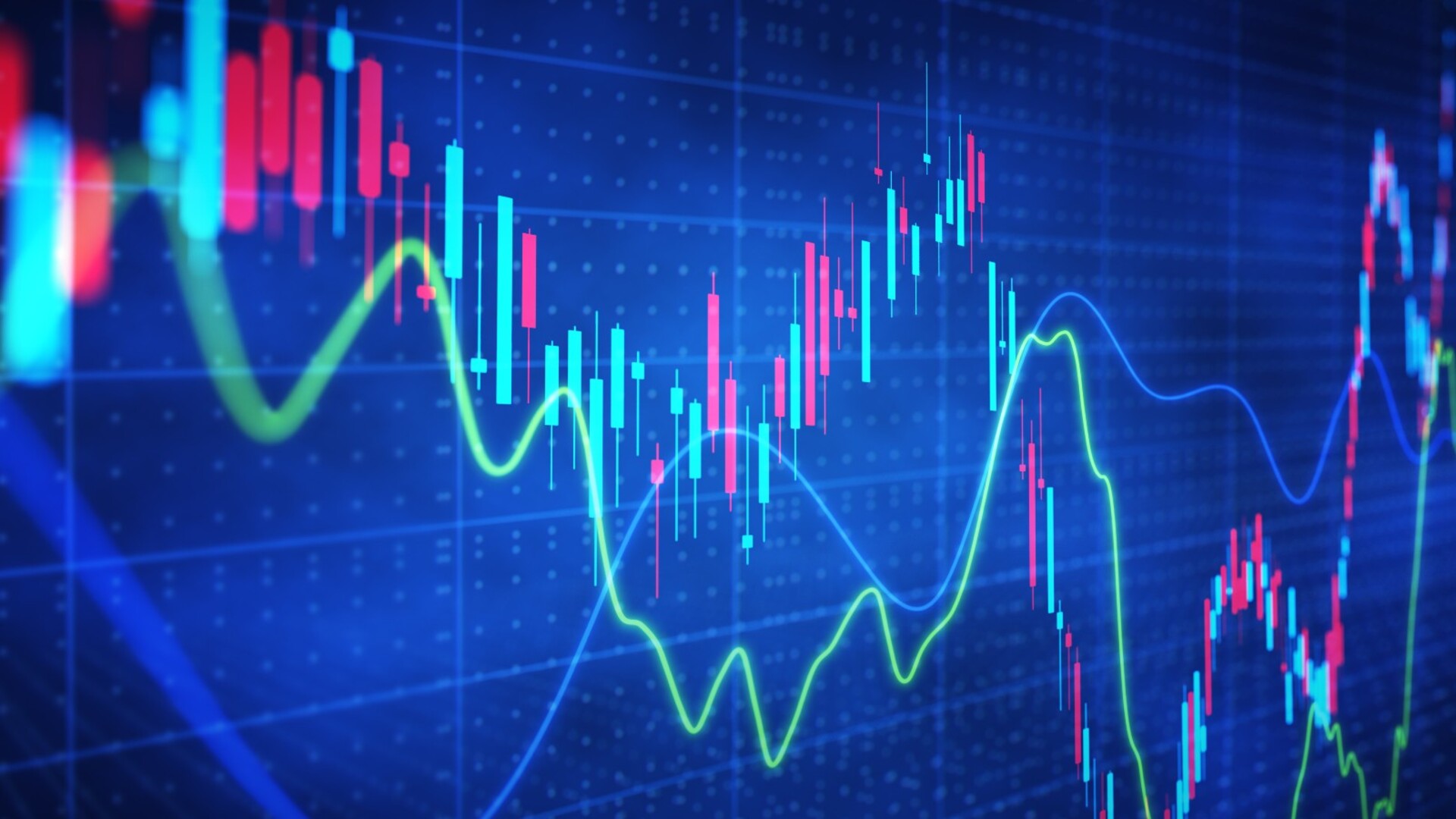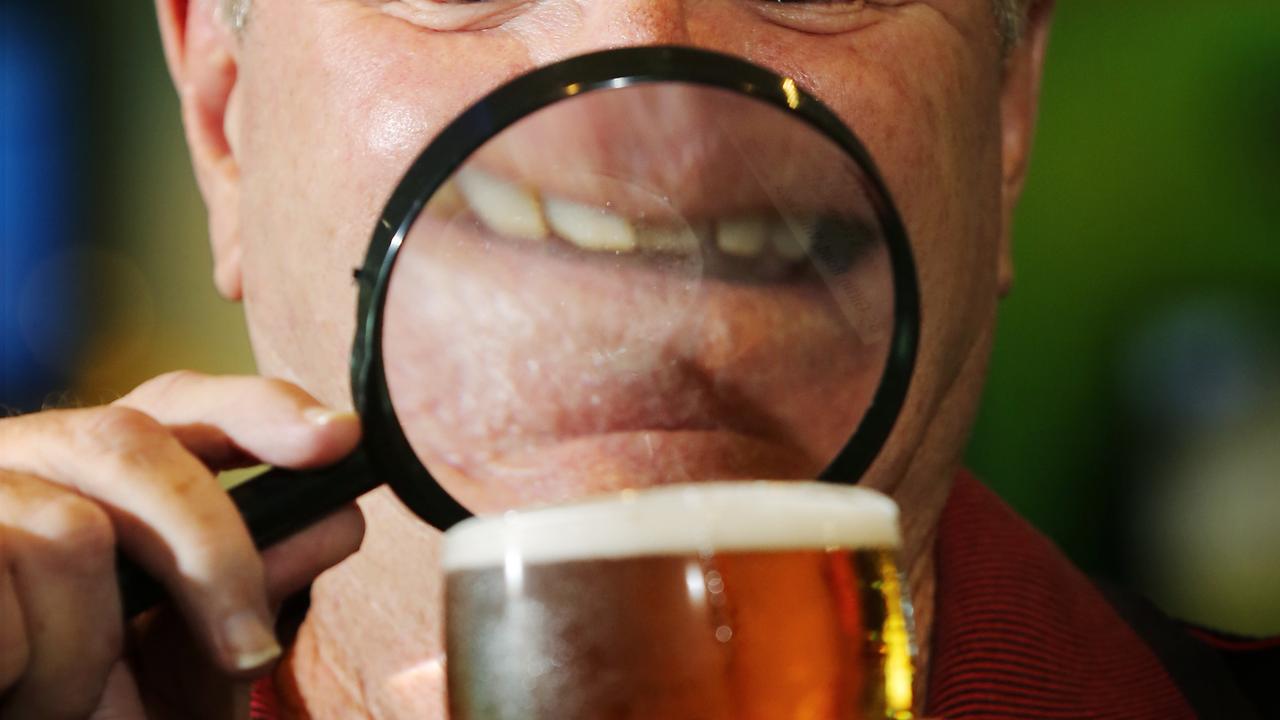Super fund returns back on track after another strong month on sharemarkets
After a rough March quarter thanks to the Donald Trump-inspired trade war, another solid rise in Australian shares this month has put super fund returns back on track.

Business
Don't miss out on the headlines from Business. Followed categories will be added to My News.
Another solid rise in Australian shares this month has put super fund returns back on track after a rough March quarter due to the trade war. Despite some lingering risks, the worst may be over.
After a strong start to the year and a record high for S&P/ASX 200, the market fell 8 per cent over February and March in a selloff that culminated in the “Liberation Day” tariffs announced by the US President Donald Trump on April 2.
But the resulting fall in markets led Mr Trump to announce a 90-day pause on country-specific tariffs, and a subsequent trade truce with China saw the removal of retaliatory tariffs between the two nations.
With the ASX 200 rebounding as much as 18 per cent from its April low, the index added 3.6 per cent in April and another 3.8 per cent in May, leaving it up 8.6 per cent for the financial year to date.
After the February-March selloff, the median super fund in the growth category (61-80 per cent invested in growth assets like stocks) was looking at a return of just 5.5 per cent for the first nine months of the financial year. But while government bond yields have gone sideways, the strong rebound in the stockmarket over the past two months now puts the median super fund in the growth category on track for an annual return in line with the long-run average.
“We estimate that the median growth option is up about 3.1 per cent over April/May 2025 so far and up about 8.6 per cent over the financial year to date,” Chant West senior investment research manager, Mano Mohankumar, said.
Tariff news in the past week led to further volatility in markets and added another layer of uncertainty.

After weeks of de-escalation, Mr Trump ramped up the trade war, threatening a 50 per cent tariff on European Union imports and 25 per cent tariffs on smartphones made outside the US.
But markets cheered on Monday and Tuesday after Mr Trump agreed to delay the EU tariff start date from June 1 to July 9 after a “very nice call” from EU Commission President Ursula von der Leyen.
On Thursday, the US Court of International Trade ruled that Mr Trump didn’t have the authority to impose sweeping tariffs under the International Emergency Economic Powers Act of 1977, or IEEPA. The ruling voided many of the Trump’s administration’s moves on trade, including fentanyl-related tariffs on Canada, Mexico and China; the baseline 10 per cent tariffs on most trading partners; and the higher “reciprocal” tariffs that are on hold while trade talks continue.
However, the US Court of Appeals for the Federal Circuit subsequently placed an administrative stay on the ruling by the Court of International Trade so that it could hear further legal arguments.
The Wall Street Journal said Mr Trump is now considering a stopgap effort to impose tariffs under a never-before-used provision of the Trade Act of 1974, which includes language allowing for tariffs of up to 15 per cent for 150 days to address trade imbalances.
That would then buy time for Mr Trump to devise individualised tariffs for each major trading partner under a different provision of the same law, used to counter unfair foreign trade practices.
After exceptionally strong rebounds of roughly 20 per cent in the past seven weeks, stockmarkets in the US and Australia are approaching their highest levels of the year despite heightened uncertainty over outlook for US trade, fiscal and monetary policy trade policy.
However, on an optimistic reading, the worst of the US trade policy uncertainty has passed.

Ten Cap chief investment officer, Jason Todd, sees the stockmarket outlook as “constructive” despite ongoing uncertainty around the outlook for international trade and the global economy.
“We believe the US can now avoid a recession, and that in and of itself should account for a lot of the recovery in equity markets, regardless of whether there is a wide confidence interval around final tariff outcomes and where economic growth settles,” he said.
“Equity investors will still need to deal with a slowing US and global economy, the potential for slightly higher inflation, a modest earnings downgrade cycle as tariff impacts are either absorbed via lower profit margins or via lower sales, as well as the uncertainty that results from President Trump running policy through social media announcements. But these are not insurmountable problems.
“This baseline turned bearish in early April, and while the outlook is still for slower growth and higher inflation, led by the US, this is a step up from recession and a bear market. While it is harder to justify how fast or far equity markets have recovered, they have been buoyed by better-than-expected news around tariff rates and the willingness of US policymakers to make concessions.”
Australia is meanwhile seen as largely sheltered from the direct impacts of a global trade war, and the Reserve Bank has only just embarked on its interest rate-cutting cycle.
More Coverage
Originally published as Super fund returns back on track after another strong month on sharemarkets





